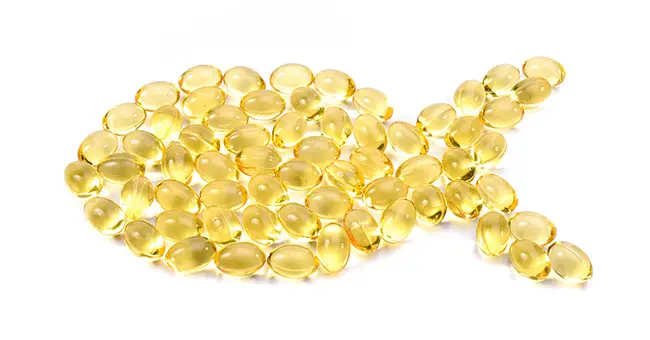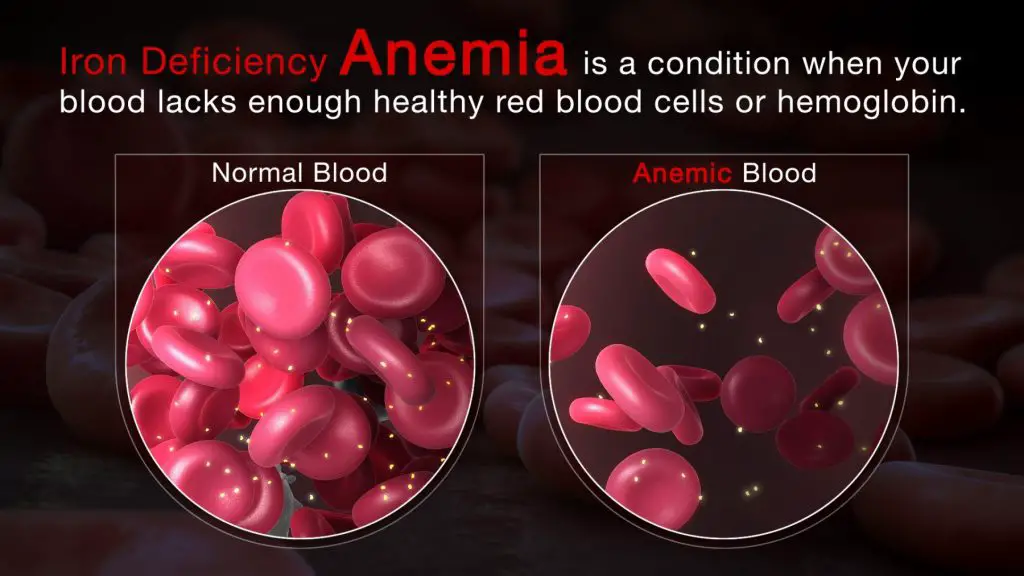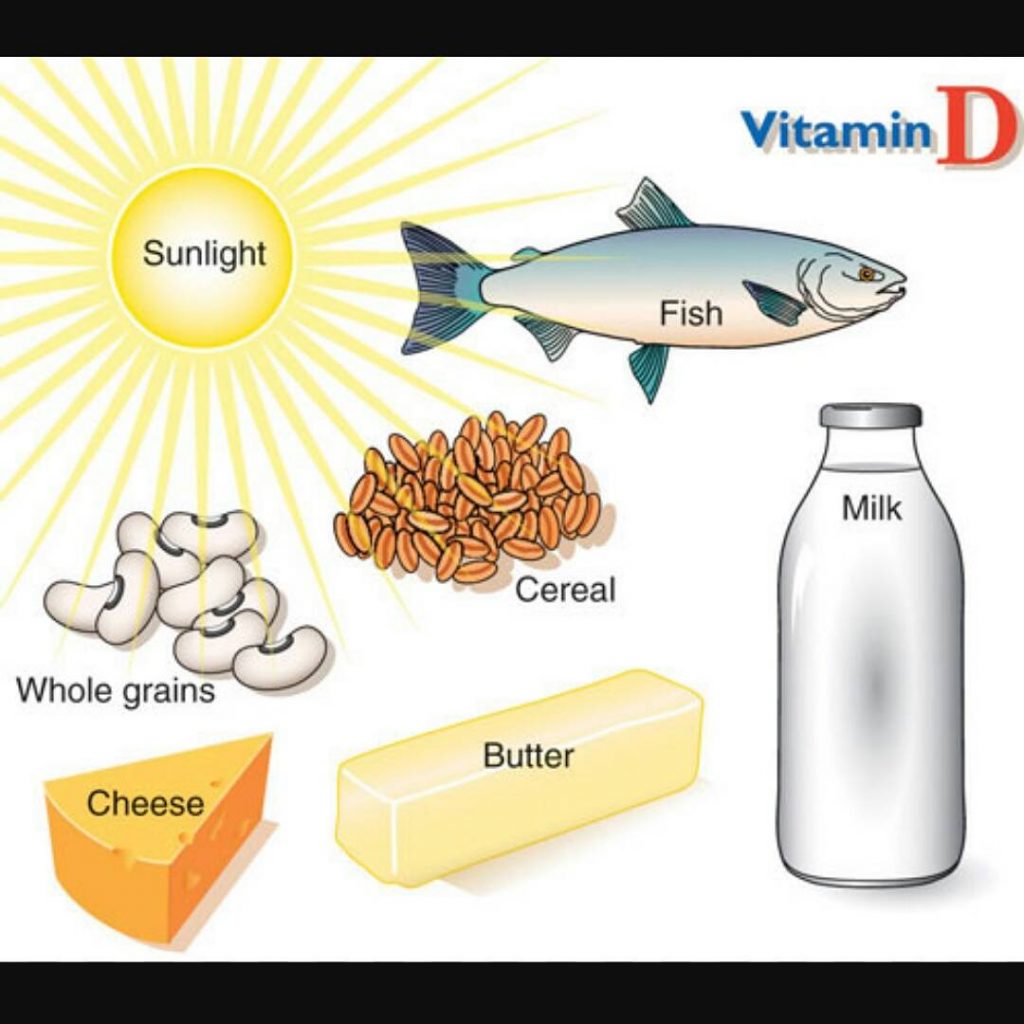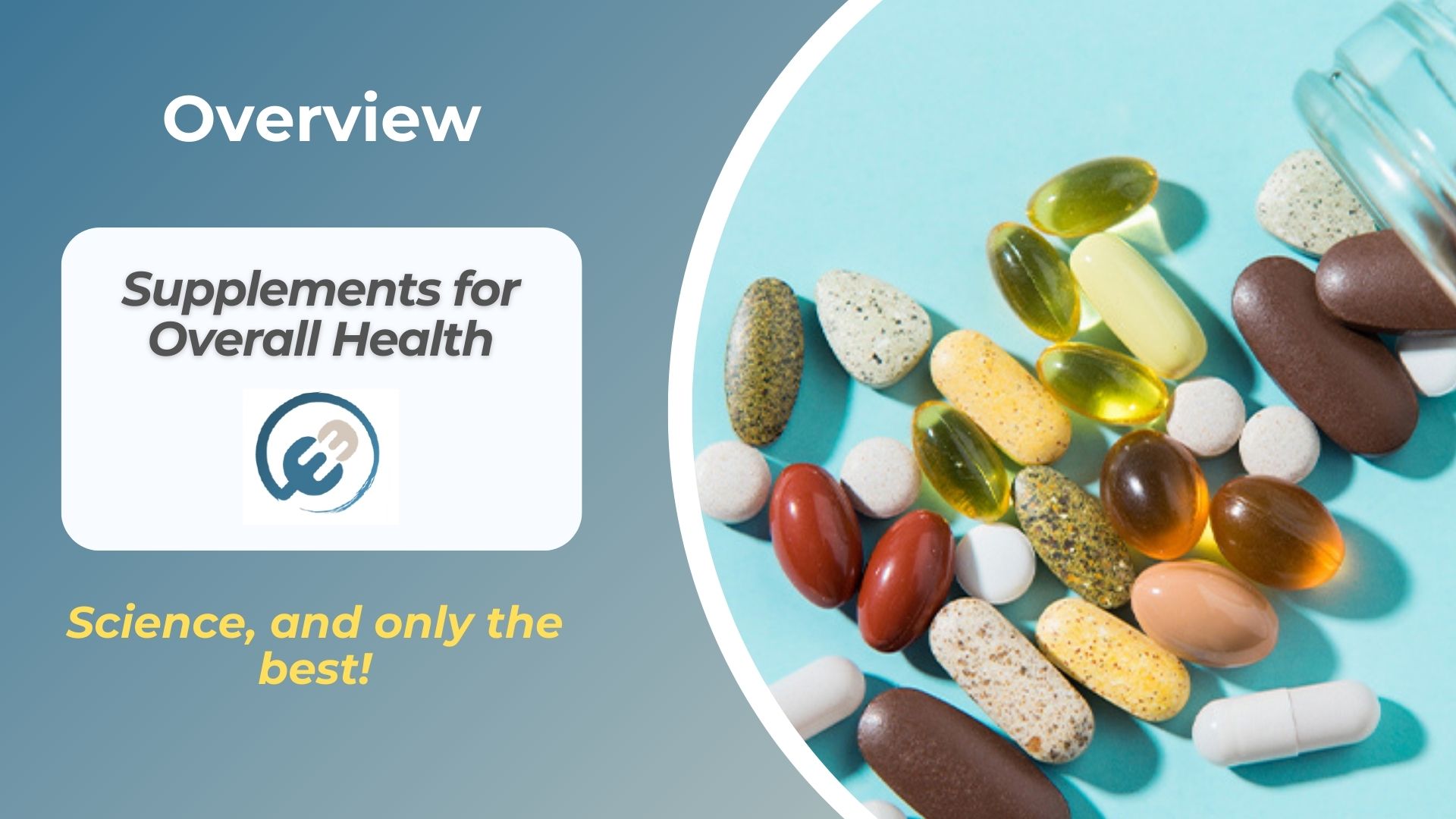While there are many different supplements on the market that tout a variety of health benefits, it can be tough to know which ones are worth taking and which ones are nothing more than snake oil.
This blog post will focus on only the most proven supplements, vitamins and minerals that have the most scientific support – such as fish oil, iron supplements if pregnant or anemic, and vitamin D. We also include info for who these supplements are best!
While supplements are generally safe, they can benefit certain types of people with various deficiencies or specific health problems much more so than the average person who wants to take a multivitamin.
We hope this post can help make informed decisions about which supplements are right for you. We will also provide tips on how to choose the right supplements for your needs.
So whether you’re just trying to stay healthy or you’re dealing with a specific health issue, read on for information about the best supplements for you!
Fish Oil – For everyone, but especially those with heart issues

Fish oil is a supplement that contains fatty acids – specifically eicosapentaenoic acid (EPA) and docosahexaenoic acid (DHA) – which have been shown to offer a host of health benefits, including a reduced risk of heart disease and stroke, lower blood pressure, and improved cognitive function.
Fish oil supplements usually come in the form of capsules containing either EPA and DHA or just DHA. The American Heart Association recommends taking 2-4 grams of EPA + DHA per day for people with coronary heart disease and 1 gram per day for people without coronary heart disease.
Together, EPA and DHA are known as Omega-3 fatty acids.
What are Omega-3 fatty acids and why are they important?
Omega-3 fatty acids are a type of fat that is essential for human health. They can be found in fatty fish, such as salmon and tuna, as well as in flaxseeds and chia seeds. Omega-3 fatty acids are important for heart health and have also been linked to a reduced risk of Alzheimer’s disease and other cognitive decline.
Overall, fish oil we believe to be the best supplement for a variety of people, and especially those with heart conditions. They help promote heart health, keep your nerve and blood cells healthy, and help minimize the risk of a variety of health conditions (like heart disease).
Iron Supplements – Good for Vegans & Pregnancy

About 12 years ago I tried a strict vegetarian diet and didn’t get enough iron intake and became anemic. I felt fatigued and exhausted all the time, but didn’t know about anemia until I got a blood test.
Fortunately, with iron supplements and by switching around my diet, my blood iron levels returned to normal in about 1 month.
But what is iron and why is it important?
Iron is a mineral that is essential for carrying oxygen in the blood and is found in food sources like red meat, poultry, seafood, beans, lentils, dark leafy greens, and fortified foods.
Without enough iron in your blood, you can develop anemia, which as we mentioned, can lead to fatigue and exhaustion.
Harvard’s School of Public Health says about iron, “Iron is a major component of hemoglobin, a type of protein in red blood cells that carries oxygen from your lungs to all parts of the body. Without enough iron, there aren’t enough red blood cells to transport oxygen, which leads to fatigue.”
The amount of iron you need will depend on your age, gender, and health status; women between the ages of 19-50 need 18 mg/day while men only need 8 mg/day. Pregnant women need 27 mg/day.
If you are pregnant or anemic, your doctor may recommend that you take an iron supplement.
Why? Because 27mg of iron per day is significantly higher than the needs of the average person. And if you’re pregnant and lacking iron, your baby will be at higher risk for birth defects.
So while iron is not a ‘vitamin’ per say, it is a mineral, and this is one of the best mineral supplements if you are pregnant and low on iron.
Folic Acid
Folic acid is similar to iron in that it is necessary for the formation of hemoglobin, however, its main function is as a coenzyme in single carbon transfer reactions which are important in amino acid metabolism.
These reactions are important in the synthesis of nucleic acids and thus folic acid is essential for DNA synthesis and cell division.
Essentially both folic acid and iron are essential nutrients that pregnant women can really benefit from!
Folic acid deficiencies can lead to megaloblastic anemia and neural tube defects. It is recommended that all women who could become pregnant should take 400 micrograms of folate (the natural form of folic acid) daily and continue to do so throughout the first trimester of pregnancy.
This increases to 600 micrograms during the second and third trimesters. Supplements are available over the counter and many dietary items such as breakfast cereals are fortified with folic acid.
Vitamin D – For those who don’t get enough sunlight

Vitamin D is another nutrient that is essential for overall health. It helps the body absorb calcium and promotes bone growth.
Some of the strongest scientific evidence in the world supports the health benefits of this essential vitamin.
For example, this scientific meta-analysis about vitamin D states, “Vitamin D has received worldwide attention not only for its importance for bone health in children and adults but also for reducing risk for many chronic diseases including autoimmune diseases, type 2 diabetes, heart disease, many cancers and infectious diseases.
Vitamin D deficiency is pandemic due to the fact that most humans have depended on sun for their vitamin D requirement which they now either avoid or wear sun protection for fear of skin cancer. There are few foods that naturally contain vitamin D.“
Wait, what? Vitamin D deficiency is a pandemic? How could that be?
Well, the most common source of vitamin D is the sun but what if you don’t live in a sunny area, or spend most of your days inside without sunlight?
You may have low vitamin D levels and if that’s the case, then our recommendation is that you need to eat more foods with vitamin D.
Vitamin D can be found in fatty fish like tuna and salmon, beef liver, cheese, egg yolks, and fortified foods like milk and cereal.
If you aren’t sure about your vitamin D levels, you can order an online blood test specifically for vitamin D.
Another option is to take a vitamin D supplement to reach the recommended daily intake – 600 IU/day for adults under age 70 and 800 IU/day for adults over age 70.
Most people don’t need vitamin D, but if your levels are low you will benefit a lot by taking a vitamin D supplement.
Probiotics
Probiotics are beneficial bacteria that live in the gut. They help to break down food, absorb nutrients, and fight harmful bacteria.
Probiotics are important for gut health, and research has shown that they can also help to improve immunity, reduce inflammation, and even improve mood.
In this scientific review, the authors collected close to 300 meta-analysis articles for 20 years, investigating the effect of probiotics in the prevention and treatment of diseases. They found through rigorous research, “Most meta-analyses indicated probiotics were 79% effective in preventing or treating the diseases.”
However, probiotics are not naturally present in the body, and so it is important to get them from food or supplements.
Without enough probiotics, the gut can become imbalanced, leading to digestive problems, a weakened immune system, and even depression. Therefore, it is essential to make sure that you are getting enough probiotics every day, along with eating a balanced diet.
Foods that are a good source of probiotics include yogurt, sauerkraut, kimchi, miso soup, and pickles. You can also take a probiotic supplement for stomach health to make sure you are getting enough.
Mushroom Supplements – Immunity and More
Among natural health supports, mushroom supplements have been gaining attention. Reishi supplements, one of a variety of mushroom supplements, are made from the Ganoderma Lucidum mushroom and are linked to several potential health benefits. In addition to enhancing the immune system, reishi may have the potential to alleviate stress, contribute to better sleep, and even support heart health by helping to lower blood pressure.
Researchers also highlight the adaptogenic qualities of reishi, a property that allows the body to counteract various forms of stress. Despite the promising benefits, possible side effects such as digestive upset or skin rashes warrant a consultation with a healthcare provider before starting reishi supplements.
Multivitamin
A multivitamin is a supplement that contains a variety of vitamins and minerals, including vitamins A, C, D, E, and K, and minerals such as calcium and iron. However, I want to be clear because robust scientific research does NOT support multivitamins!
For example, in this meta analysis of 21 science studies in which 90,000+ participants were studied, they conclude: “Across all studies, no effect of multivitamin-multimineral treatment on all-cause mortality was observed.”
So while a multivitamin is no substitute for a healthy diet, it can be a helpful way to ensure that you’re getting all the nutrients you need, or at the very least improve your peace of mind.
For example, I personally take a daily multivitamin, even though I know the science research doesn’t support multivitamins.
So why would I take a multivitamin if I knew it probably wouldn’t benefit me? Because in the back of my mind, I realize I may have a vitamin or mineral deficiency, and I like taking a multivitamin just to make sure I got my bases covered.
Overall, if you have a healthy diet, you probably don’t need one. But if you’re looking to supplement your diet or simply want peace of mind, a daily multivitamin can be a smart addition to your health routine.
How do I know what supplement is best for me?
With so many different vitamins on the market, it can be hard to know which one is right for you. Here are a few tips to help you choose the best vitamin for your needs.
1. First, identify your specific health needs.
When it comes to vitamins, more is not always better. In fact, vitamins are most effective when used to treat a specific health problem.
For example, if you are trying to improve your energy levels, taking a vitamin B12 supplement can be helpful. However, if you don’t have a specific health need, taking a daily multivitamin is unlikely to provide any benefits.
So, before you start popping pills, it’s important to identify your specific health needs. Once you know what you’re looking for, you can select the best vitamin for your needs.
2. Next, research the science behind various vitamins.
Not all vitamins are created equal – some have more scientific support than others. Be sure to read up on the latest research to see which vitamins are most effective for your specific health problem.
For example, vitamin C is one of the most well-known and widely used vitamins. It is a water-soluble vitamin that is found in many fruits and vegetables, as well as in supplements.
Vitamin C is known for its role in boosting immunity, and it has also been shown to help reduce the severity of allergic reactions and helps to fight off infections. However, recent research has suggested that vitamin C may not be as effective as previously thought.
One study found that vitamin C supplements did not reduce the risk of colds or other respiratory infections. Another study found that vitamin C did not improve cancer, atherosclerosis, diabetes, neurodegenerative disease and metal toxicity.
While more research is needed, these findings suggest that vitamin C may not be as beneficial as once thought. The same thing can be said for other vitamins as well!
3. Finally, check the ingredient list of any supplements you’re considering.
With so many supplements on the market, it can be hard to know which one to choose. When it comes to treatment for anxiety, you want to make sure you are getting the most effective supplement possible.
Checking the ingredient list is a good place to start. Make sure that the ingredients with the most scientific support are included in the supplement you choose. This will help ensure that you’re getting the best possible treatment!
You may want to review the most popular supplements (as these are usually popular for good reason) but take everything with a grain of salt and do your own research!
What Supplements Should I Take Conclusion
While there are many different supplements available on the market today, not all of them are backed by science, and certain supplements are better than others for various health conditions.
This blog post has focused on only the most proven dietary supplements that have the most scientific support – such as fish oil, iron supplements if pregnant or anemic, and vitamin D – so that you can make informed decisions about taking dietary supplements that are best for you, if you want.
If you want more info about supplements and vitamins, including how to read labels, myths and more – read our ultimate guide for beginners who want to start taking supplements and vitamins.
Thank you for reading! I hope this has been helpful in understanding what supplements you should be taking to enhance health. If you have any questions, please feel free to leave a comment below.



